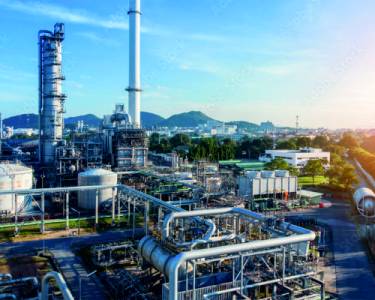Description
Petrochemicals: Fueling the World's Industries
The petrochemicals industry is a cornerstone of modern life, transforming crude oil and natural gas into a vast array of essential products that touch virtually every aspect of our daily existence. This complex and globally interconnected industry encompasses the extraction, refining, and processing of hydrocarbons into thousands of intermediate and finished goods.
What are Petrochemicals?
Petrochemicals are chemical products derived from petroleum (crude oil) and natural gas. These raw materials are refined and processed through various chemical reactions to produce a wide spectrum of building block molecules, known as basic petrochemicals, which then serve as the foundation for a multitude of downstream products.
Key Processes and Products:
The industry is characterized by several crucial stages:
- Upstream: This involves the exploration, extraction, and transportation of crude oil and natural gas. This stage relies heavily on geological expertise, drilling technologies, and sophisticated logistics.
- Midstream: Here, the crude oil undergoes refining to separate it into its various components (e.g., gasoline, diesel, kerosene). Natural gas is also processed to remove impurities and separate different components.
- Downstream: This is where the magic happens. Basic petrochemicals are produced from the refined products. Key examples include:
- Ethylene: Used to create polyethylene (plastic bags, films, bottles), ethylene glycol (antifreeze), and other essential chemicals.
- Propylene: Used to produce polypropylene (packaging, textiles, automotive parts), acrylic fibers, and other plastics.
- Benzene: Used to manufacture styrene (polystyrene, packaging), nylon, and other synthetic fibers.
- Butadiene: Used in the production of synthetic rubber and plastics.
These basic petrochemicals then become the raw materials for a vast range of downstream products, including:
- Plastics: Packaging, films, bottles, fibers, construction materials, automotive parts, and countless other applications.
- Synthetic Fibers: Used in clothing, carpets, upholstery, and industrial textiles.
- Synthetic Rubbers: Used in tires, hoses, seals, and other applications requiring flexibility and durability.
- Solvents: Used in various industrial processes and cleaning applications.
- Fertilizers: Essential for agriculture and food production.
- Paints and Coatings: Used in construction, automotive, and other industries.
- Pharmaceuticals and Cosmetics: Many pharmaceuticals and cosmetic ingredients are derived from petrochemicals.
Market Dynamics and Challenges:
The petrochemicals industry is a highly cyclical market influenced by fluctuating crude oil and natural gas prices, global economic conditions, and geopolitical events. The industry faces ongoing challenges related to:
- Environmental concerns: The production and use of petrochemicals contribute to greenhouse gas emissions and plastic pollution. Sustainable alternatives and recycling technologies are actively being developed.
- Resource depletion: Crude oil and natural gas are finite resources, prompting a search for renewable alternatives and more efficient production methods.
- Regulatory pressures: Increasingly stringent environmental regulations are shaping the industry's practices and driving innovation towards cleaner technologies.
- Competition: The industry is characterized by intense competition among global players.
Future Outlook:
The future of the petrochemicals industry will be defined by innovation, sustainability, and diversification. Efforts towards circular economy models, bio-based alternatives, and carbon capture technologies are becoming increasingly important to address environmental concerns and secure the industry's long-term viability. The industry is expected to continue its crucial role in supporting global economic growth while adapting to the evolving needs of a sustainable future.
